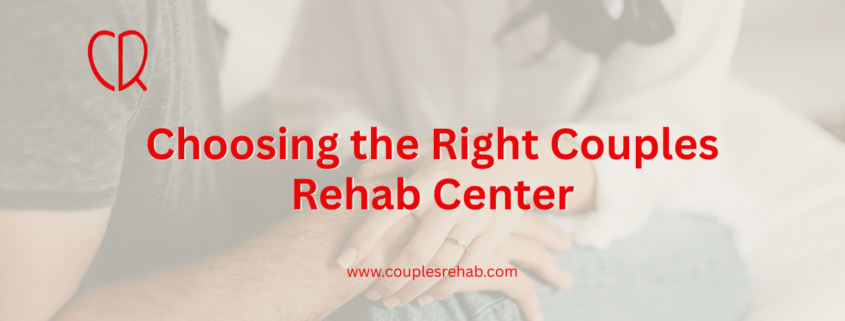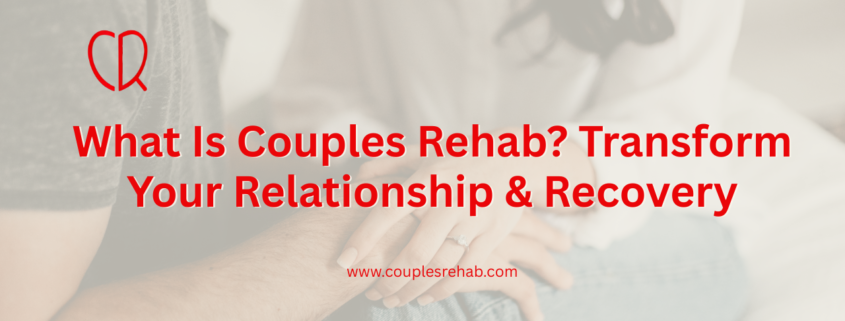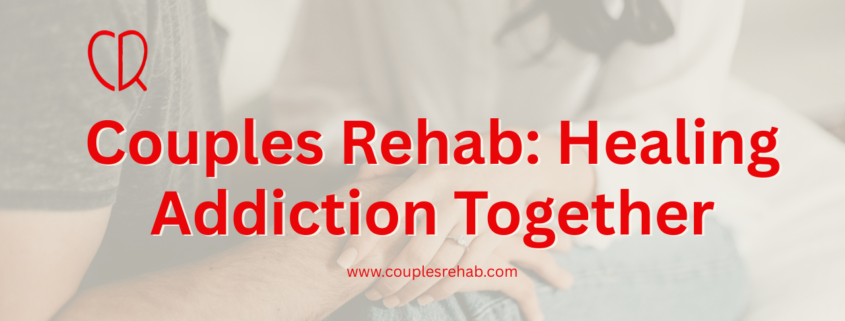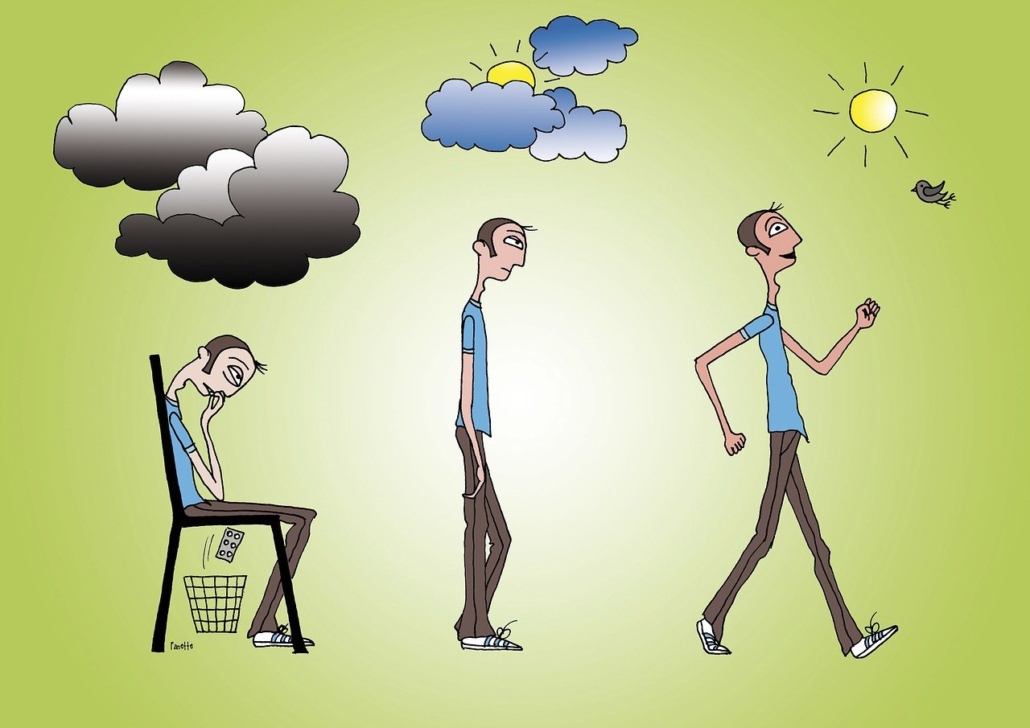The decision to seek help is a courageous first step, but choosing the right couples rehab center can seem overwhelming amid the stress and emotional turmoil that addiction brings. With numerous facilities offering various treatment approaches, understanding what to look for when choosing the right couples rehab center is crucial for long-term recovery success.
At Couples Rehab, we understand that healing together can be a powerful catalyst for lasting sobriety. Research has shown that couples who enter treatment together consistently report greater reductions in substance use than individuals who receive therapy alone. This comprehensive guide will walk you through the essential factors to consider when choosing the right couples rehab center that addresses both your individual needs and relationship dynamics.
Whether you’re just beginning to research options or ready to make a decision, this guide provides the information you need to find a couples rehab center that offers the best chance for recovery and relationship renewal.
Why Couples Rehab Can Be Effective
Before diving into selection criteria for choosing the right couples rehab center, it’s important to understand why couples rehab can be particularly effective. When both partners in a romantic relationship struggle with addiction, seeking treatment together at a couples rehab center can be beneficial for several reasons. Couples addiction treatment can help break the cycle of addiction and strengthen the relationship by uncovering underlying issues while providing counseling, education, and skills to improve decision-making, emotional expression, finances, parenting, and boundary-setting.
Some key benefits include:
- Mutual accountability – Partners can support each other through difficult moments in recovery
- Addressing relationship patterns – Treatment can identify and modify destructive relationship dynamics that contribute to substance use
- Shared healing – Both partners learn new communication skills and coping mechanisms simultaneously
- Unified recovery plan – Couples develop a cohesive strategy for maintaining sobriety after treatment
- Stronger foundation – Recovery becomes a shared value that can strengthen the relationship bond
Even if only one partner has a substance use disorder, the other can benefit from couples rehab by learning how to manage triggers and support their partner’s sobriety efforts.
Factors to Consider When Selecting a Couples Rehab Program for Addiction
1. Treatment Approaches and Methodologies
One of the most critical factors when choosing a couples rehab center is understanding the treatment approaches they offer. Effective couples treatment programs typically use various types of behavioral therapy to identify and modify addiction-related behaviors while teaching new ways of interacting and promoting clear, supportive communication.
Look for programs that offer evidence-based therapies specifically designed for couples, such as:
Behavioral Couples Therapy (BCT): BCT is designed to help couples living with addiction by using behavioral modification techniques through a “recovery contract” where one partner states their intention not to use substances while the other provides support. Couples typically see a therapist weekly to discuss goals and develop new coping skills.
Emotionally Focused Therapy (EFT): EFT is intended to help adults improve their relationships and has been shown to be 75% effective in strengthening couple relationships according to the American Psychological Association. This approach focuses on emotional bonds and attachment patterns.
Integrated Behavioral Couples Therapy (IBCT): This approach combines the best elements of traditional behavioral couples therapy with acceptance strategies to address incompatibilities between partners.
When researching facilities, ask detailed questions about their therapeutic approaches and how they’ll be tailored to your specific situation. The right program should offer a combination of individual and couples therapy to address both personal recovery needs and relationship dynamics.
2. Accreditation and Licensing for Couples Rehab Facilities
Proper accreditation and licensing are non-negotiable factors when selecting a quality couples rehab center. These credentials ensure that the facility meets established standards for safety, effectiveness, and ethical treatment.
Key accreditations to look for include:
- Joint Commission (formerly JCAHO) – The gold standard in healthcare accreditation
- Commission on Accreditation of Rehabilitation Facilities (CARF) – Focuses specifically on rehabilitation programs
- State licensing – Ensures the facility meets local regulatory requirements
- Licensed clinical staff – Therapists should have appropriate credentials (LMFT, LCSW, PhD, etc.)
Beyond basic licensing, inquire about staff credentials specifically related to couples therapy and addiction treatment. Therapists who are certified in specialized approaches like BCT or EFT may provide more effective treatment for couples.
For example, therapists certified in EFT (Emotionally Focused Therapy) through the International Centre for Excellence in Emotionally Focused Therapy (ICEEFT) have completed specific training in couples therapy approaches that address relationship dynamics.
Remember that accreditation doesn’t automatically guarantee quality treatment, but it does indicate that the facility meets minimum standards of care and undergoes regular evaluations to maintain their credentials.
3. Inpatient versus Outpatient Couples Rehab Programs
When considering treatment options, one of the most significant decisions is choosing between inpatient and outpatient couples rehab programs. Each option has distinct advantages depending on your situation.
Inpatient/Residential Treatment:
Inpatient couples drug rehabs offer quality care around-the-clock with trained professionals providing the highest level of treatment. Patients typically stay in furnished apartments or houses rather than sterile medical facilities, with some centers offering amenities like swimming pools and on-site laundry.
Benefits include:
- 24/7 support and monitoring
- Removal from triggers and environmental stressors
- Intensive therapy sessions
- Structured daily routines
- Immersive healing environment
- Peer support from other couples
Outpatient Treatment:
Outpatient rehabilitation can be convenient for those with a stable home environment who can commit significant time to the program while continuing their daily lives. These programs typically include group and individual therapy, mental health treatment, medication-assisted treatment, and a structured environment designed to avoid triggering cravings.
Benefits include:
- Ability to maintain work and family responsibilities
- Lower cost than residential programs
- Immediate application of new skills in real-life settings
- Flexible scheduling options
- Living at home with your partner
The right choice depends on several factors including:
- Severity of addiction
- Previous treatment history
- Home environment stability
- Work and family obligations
- Financial considerations
- Insurance coverage
For many couples with severe or long-term addiction issues, a continuum of care that begins with inpatient treatment and transitions to outpatient services offers the most comprehensive approach to recovery.
4. Program Specialization for Specific Types of Addiction
When selecting a couples rehab center, it’s crucial to ensure the facility has expertise in treating your specific type of addiction. Different substances create different physical and psychological dependencies, requiring specialized treatment approaches.
Common specializations include:
- Alcohol addiction – Programs may include medically supervised detoxification and specific therapies for alcohol use disorder
- Opioid addiction – May offer medication-assisted treatment (MAT) options like buprenorphine or methadone
- Stimulant addiction (cocaine, methamphetamine) – Focuses on managing intense cravings and mood regulation
- Prescription drug addiction – Addresses both physical dependency and legitimate pain management needs
- Poly-substance use – Expertise in treating multiple concurrent addictions
Beyond substance type, inquire about experience with your specific demographics:
- Age-specific programs
- LGBTQ+ affirming care
- Cultural competency
- Trauma-informed approaches
- Dual diagnosis treatment for co-occurring mental health conditions
At quality couples rehab facilities, specialists will delve into the root causes of addiction and create individualized rehab programs that address both partners’ specific substance use issues.
Ask direct questions about the facility’s experience with your specific addiction type and request success rates or outcomes data for couples with similar circumstances.
5. Addressing Co-dependency and Relationship Issues
Addiction rarely exists in isolation within relationships. Co-dependency, enabling behaviors, and unhealthy relationship patterns often become intertwined with substance use. Effective couples rehab programs must directly address these relationship dynamics.
Key relationship issues that quality programs should address include:
- Co-dependency – When one partner’s self-worth becomes dependent on caring for or controlling the other
- Enabling behaviors – Actions that inadvertently support continued substance use
- Communication patterns – Developing healthy, direct communication styles
- Boundary setting – Learning to establish and respect personal limitations
- Trust rebuilding – Healing from betrayals and broken promises related to addiction
- Conflict resolution – Developing healthy ways to address disagreements
- Shared triggers – Identifying situations that prompt substance use for both partners
Couples rehab programs can be particularly effective because they address both individual and relational aspects of substance abuse affecting each partner.
When evaluating programs, ask specifically about their approach to relationship dynamics:
- What relationship assessment tools do they use?
- How do they balance individual recovery needs with relationship work?
- What specific therapeutic modalities address relationship patterns?
- How do they handle situations where one partner is more committed to recovery?
The most effective programs recognize that healthy relationships are foundational to lasting recovery and provide specific tools to transform destructive patterns into supportive ones.
6. Aftercare and Relapse Prevention Support
Recovery doesn’t end when formal treatment concludes. Couples who attend rehab and therapy together have shown remarkable improvements in communication while creating a healthier environment to encourage maintaining sobriety. However, sustaining these gains requires comprehensive aftercare planning and ongoing support.
Effective aftercare and relapse prevention components include:
Continuing Care Programs:
- Step-down treatment options (partial hospitalization, intensive outpatient)
- Regular outpatient therapy sessions (both individual and couples)
- Recovery coaching or case management
- Medication management if needed
Support Group Integration:
- Connections to couples-focused support groups
- Referrals to traditional 12-step programs (AA, NA)
- Alternatives like SMART Recovery or Refuge Recovery
- Family support programs (Al-Anon, Nar-Anon)
Practical Skills Development:
- Relapse prevention planning for both partners
- Trigger identification and management strategies
- Stress reduction techniques
- Healthy lifestyle support (nutrition, exercise, sleep)
- Financial planning and vocational assistance
Crisis Planning:
- Clear protocols for handling relapse
- Emergency contact resources
- Return-to-treatment pathways if needed
When evaluating facilities, ask detailed questions about their aftercare approach:
- How is the aftercare plan developed and who participates?
- What specific resources are provided upon discharge?
- How long does the facility maintain contact with couples after treatment?
- Is there a alumni program or ongoing community engagement?
- What happens if one partner relapses after treatment?
The most effective couples rehab centers view treatment as the beginning of recovery, not the end, and provide robust ongoing support to help couples navigate the challenges of early sobriety together.
7. Location and Environment Considerations
The physical setting of a couples rehab facility can significantly impact the recovery experience. When considering location and environment, balance practical considerations with therapeutic benefits.
Location Factors:
- Proximity to home – Some couples benefit from being close to support systems, while others need distance from triggers
- Climate and natural surroundings – Natural environments can promote healing and reflection
- Urban vs. rural settings – Each offers different advantages for recovery focus
- Travel requirements – Consider logistics for family visits or step-down care
- Cultural environment – Community attitudes toward recovery can impact experience
Facility Environment:
- Physical comfort – Quality of accommodations and amenities
- Safety and security – Measures to ensure physical and emotional safety
- Shared vs. private spaces – Balance between community and privacy
- Technology access – Policies regarding phones, internet, and outside communication
- Recreational opportunities – Options for physical activity and leisure
When researching facilities, consider:
- Requesting virtual tours of the grounds and living quarters
- Asking about typical daily schedules and how the environment supports them
- Inquiring about policies for leaving the grounds during treatment
- Understanding roommate arrangements for couples
- Reviewing the center’s approach to creating a therapeutic community
The physical environment plays an important role in the healing process. A thoughtfully designed treatment setting can reduce stress and provide a safe space for vulnerable therapeutic work.

8. Cost and Insurance Considerations
Financial aspects are unavoidably important when selecting a couples rehab center. Understanding costs, insurance coverage, and payment options can help you make an informed decision without adding financial stress to an already challenging situation.
Insurance Coverage: Most private and public health insurance plans cover the cost of substance abuse treatment, with some even covering the entire cost of an inpatient rehab program. It’s best to research treatment providers and ask whether they accept your specific insurance plan.
While couples therapy itself is not covered by most health insurance plans, if one partner is qualified to receive care for a specific mental health diagnosis, some coverage may be possible.
Key insurance-related questions:
- Is the facility in-network or out-of-network with your insurance?
- What specific services are covered (detox, therapy, medication)?
- Are there coverage limits for residential treatment?
- What documentation is required for insurance approval?
- Will the facility handle insurance verification and claims?
Treatment Costs:
- Inpatient/residential treatment – Typically ranges from $20,000-$60,000 for a 30-day program
- Outpatient treatment – Generally $5,000-$15,000 for a comprehensive program
- Partial hospitalization programs – Usually $10,000-$30,000 depending on duration
- Detoxification services – Often $1,500-$7,000 depending on medical needs
Financial Assistance Options: If your insurance doesn’t provide coverage, look for sliding scale programs, alternative financing, or SAMHSA grants to help manage costs.
Additional options include:
- Payment plans offered by the facility
- Healthcare loans or financing programs
- Scholarships or grants for treatment
- State-funded treatment options
- Veterans benefits for qualifying individuals
The most reputable facilities provide transparent information about costs and work collaboratively to help you navigate financial considerations. Remember that while cost is important, the quality and appropriateness of treatment should be the primary consideration for long-term success.
9. Specialized Therapies and Treatment Approaches
Beyond standard addiction treatment modalities, many couples rehab centers offer specialized therapies that can enhance recovery outcomes. These evidence-based approaches can address specific aspects of addiction and relationship healing.
Couples-Focused Specialized Therapies:
Behavioral Couples Therapy (BCT): BCT is designed for couples where one or both partners struggle with substance abuse. Couples who enroll in BCT-integrated rehab programs typically attend 12 to 20 treatment sessions together over 3 to 6 months, creating “recovery contracts” and practicing new skills under therapist supervision.
Emotionally Focused Therapy (EFT): EFT is grounded in attachment science, focusing on our human need for safety and connection. This approach provides a roadmap to healing and resilience for couples by addressing emotional bonds and communication patterns.
Additional Therapeutic Approaches:
- Cognitive-Behavioral Therapy (CBT) – Addresses thought patterns that contribute to addiction
- Dialectical Behavior Therapy (DBT) – Focuses on emotional regulation and distress tolerance
- Acceptance and Commitment Therapy (ACT) – Helps couples accept difficult feelings while committing to behavior change
- Mindfulness-Based Relapse Prevention – Incorporates meditation and awareness practices
- Psychodrama – Uses role-playing to work through relationship scenarios
- Art or music therapy – Provides creative expression for emotional processing
- Adventure therapy – Uses outdoor experiences to build trust and communication
- Trauma-informed therapies – Addresses underlying trauma that may contribute to addiction
When evaluating programs, inquire about:
- Which specialized therapies are incorporated into treatment
- The training and certification of staff in these modalities
- How these approaches are integrated into the overall treatment plan
- Evidence supporting these methods for couples specifically
- How progress in therapy is measured and evaluated
The most effective couples rehab programs often combine multiple therapeutic approaches, tailoring treatment to each couple’s specific needs and learning styles.
10. Questions to Ask When Researching Couples Addiction Treatment Centers
Armed with knowledge about key selection factors, it’s important to ask specific questions when contacting potential treatment facilities. These inquiries will help you evaluate whether a program meets your needs and increases your chances of successful recovery.
Treatment Approach Questions:
- What specific couples therapy models do you use?
- How do you balance individual recovery needs with relationship work?
- What is the ratio of individual to couples therapy sessions?
- How do you address codependency and enabling behaviors?
- What happens if one partner is less motivated than the other?
Program Structure Questions:
- Can you describe a typical day in your program?
- What is the average length of stay for couples?
- Do couples share living quarters or are they housed separately?
- How much contact do couples have throughout the day?
- What family involvement is encouraged during treatment?
Staff and Expertise Questions:
- What are the credentials of your clinical team?
- Do you have specialists in both addiction and relationship therapy?
- What is your staff-to-client ratio?
- How much experience do you have treating our specific type of addiction?
- Is there medical staff available 24/7?
Success and Outcomes Questions:
- What metrics do you use to measure treatment success?
- What percentage of couples complete your program?
- What are your long-term sobriety rates for couples?
- How do you handle situations where one partner relapses?
- Can we speak with alumni couples from your program?
Practical and Logistical Questions:
- Does your facility accept our insurance?
- What is the total expected cost including all services?
- What items are allowed or prohibited during treatment?
- What is your policy on phone and internet use?
- How are medications managed during treatment?
During these conversations, pay attention not only to the content of responses but also to how they’re delivered. Staff should be transparent, compassionate, and willing to address concerns. Reluctance to answer reasonable questions may indicate potential issues with program quality or appropriateness.
Conclusion: Making the Decision for Your Recovery Journey
Choosing the right couples rehab center is a pivotal decision that can significantly impact your recovery journey and relationship health. By carefully evaluating the factors outlined in this guide—from treatment approaches and program specialization to location and financial considerations—you can make an informed choice that addresses your unique needs as a couple.
Remember that when choosing the right couples rehab center, the best program for you will:
- Address both individual addiction issues and relationship dynamics
- Provide evidence-based treatment approaches tailored to your specific situation
- Offer a comprehensive continuum of care from admission through aftercare
- Create an environment that promotes healing, growth, and lasting recovery
- Support both partners in developing the skills needed for sustained sobriety
At Couples Rehab, we understand that seeking help for addiction is a courageous step. The decision to heal together as a couple demonstrates commitment not only to your own well-being but also to the health of your relationship. With the right treatment program and mutual dedication to recovery, couples can emerge from addiction stronger, with new skills and insights that enhance their bond.
If you need assistance navigating treatment options or have questions about couples rehab programs, our compassionate admissions counselors are available to help you find the path that’s right for your unique situation. Recovery is possible, and choosing the right couples rehab center is the first step toward a healthier future together.
FAQs About Choosing a Couples Rehab Center
1. Can couples actually attend rehab together?
Yes, many rehabilitation centers offer programs specifically designed for couples struggling with addiction. When choosing the right couples rehab center, you’ll find that these programs allow partners to attend treatment together, providing the motivation and support each person needs to recover from substance addiction. Couples therapy sessions address both addiction-related conflicts and other contributing issues within the relationship.
2. What if only one partner has an addiction issue?
Even if just one person in the relationship has an addiction, the other partner can benefit from couples rehab by learning to manage specific triggers and helping their partner stay sober. Research shows that couples who enter treatment together consistently report greater reductions in substance use than patients who receive individual therapy.
3. Will we share accommodations during inpatient treatment?
This varies by facility. Some couples rehab centers allow partners to share rooms, while others provide separate accommodations but include joint therapy sessions. In some programs, couples may be in separate parts of the facility for main treatment elements but come together for couples therapy sessions. Ask specific questions about living arrangements when researching facilities.
4. How long do couples typically stay in rehab?
Treatment duration varies based on several factors including addiction severity, substances involved, and individual progress. For couples following Behavioral Couples Therapy (BCT), programs typically last 3 to 6 months with 12 to 20 sessions. Inpatient stays commonly range from 30 to 90 days, while outpatient programs may extend several months.
5. Does insurance cover couples rehab?
Most private and public health insurance plans cover substance abuse treatment costs, with some even covering the entire cost of inpatient rehab programs. However, coverage specifics vary significantly. When choosing the right couples rehab center, it’s important to understand that while couples therapy itself is not typically covered by most health insurance plans, if one partner qualifies for treatment due to a specific mental health diagnosis, some services may be covered. Contact your insurance provider for details.








